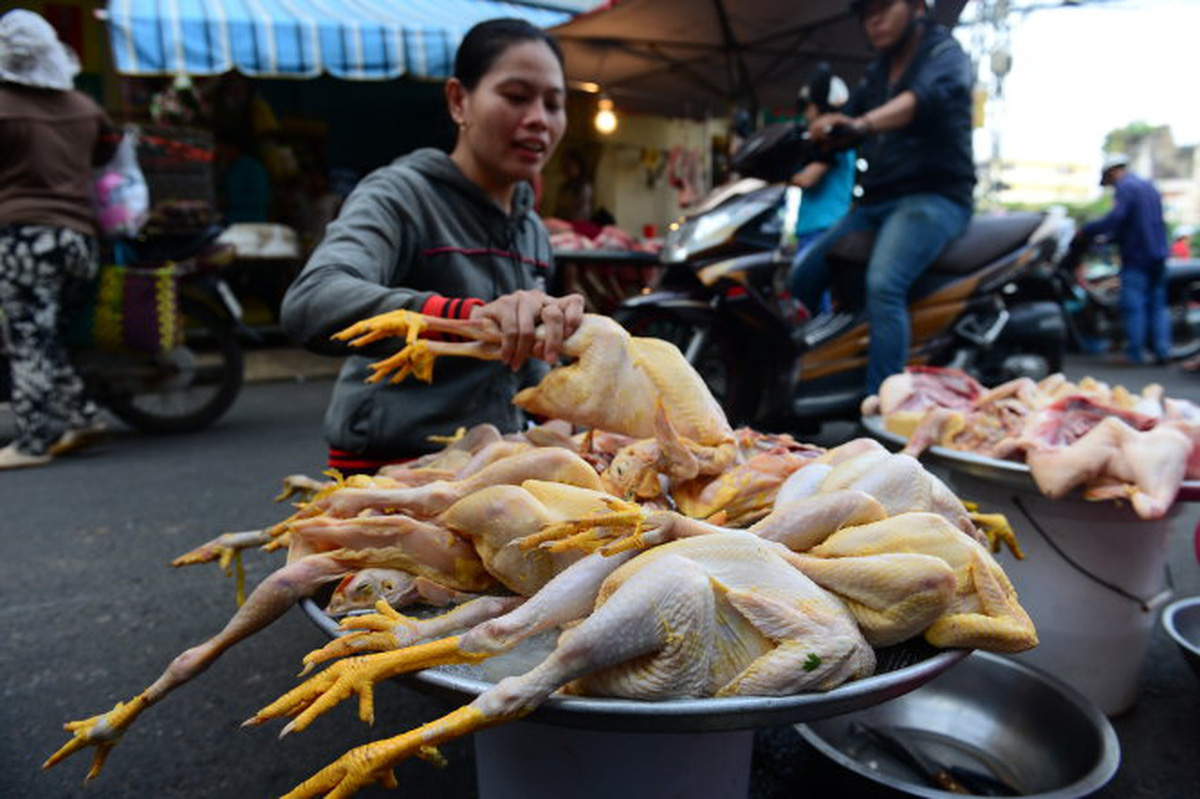A recent test by research institute the Pasteur Institute on poultry and pork samples taken from local markets revealed that 100 percent of the meat was contaminated with E. coli because of unhygienic conditions at marketplaces and slaughterhouses.
Sixty-four percent of seafood samples also tested positive for the bacteria.
E. coli, short for Escherichia coli, is a type of bacteria that normally lives in human intestines and is also found in the gut of some animals.
According to doctors, most types of E. coli are harmless and even help to keep humans' digestive tract healthy, but some strains can cause diarrhea, pneumonia, breathing problems, urinary tract infection and even life-threatening symptoms such as acute kidney failure or seizures.
The Pasteur Institute in Ho Chi Minh City, an epidemiological research institute, recently collected 150 raw meat samples from local markets.
The specimens included two duck samples, 58 chicken samples and 90 pork samples, 100 percent of which were found to be tainted with E. coli.
A further test on 147 seafood samples also found that 94 of them, or 64 percent, were positive for E. coli.
The samples were collected from markets in five southern provinces and cities; Ba Ria – Vung Tau, Binh Duong, Binh Phuoc, Dong Nai and Ho Chi Minh City, between April and August this year.
The results were announced at a conference on the topic of ‘Research for Public Health’ held at the Pasteur Institute last Friday.
According to the report, all 150 meat samples had E. coli levels exceeding the allowed limit stipulated by the Vietnamese Ministry of Health.
Of the 94 E. coli contaminated seafood samples, 24 had a ‘high-risk’ level according to Vietnamese standards.
The bacterial contamination was found to be the result of unhygienic conditions in both traditional marketplaces as well as at the slaughterhouses where the animals were killed.
Dirty water used in processing the meat was also part of the problem.
Like us on Facebook or follow us on Twitter to get the latest news about Vietnam!






















































